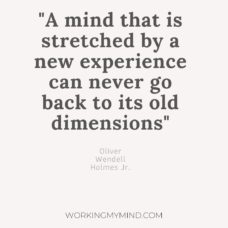How changing your attitude impact your life

By Catharina Kallio
Have you ever thought about the connection between your attitudes and the way you live your life? For some strange reason, attitudes are often thought of as something that is just there, something static. We tend to think of them as something that happens to us, out of our own control.
But what if instead we started to think of attitudes as something malleable. How would your life get better then? Once you realise how changing your attitudes can affect your life, you’ll want to focus on it much more.
Your attitudes can change your life
An attitude refers to a set of emotions, beliefs, and behaviors toward a particular object, person, thing, or event.
If we look at the definition and try to internalize it, we can draw a few conclusions. Depending on your attitude, the outcome will be different in each situation.
Thinking about it a little further, it means that a certain circumstance, person, thing or event can be perceived and reacted to in different ways. Simply put, if I’ve a different attitude than you, I’ll react differently than you. It’s not the circumstance or the person that differs, but our attitudes and thoughts about it.
What we often don’t understand is how our thoughts affect our feelings and our emotions drive our actions. This then leads to the results we’ve in life. Our thoughts and reactions can either serve us or work against us. They can help us live the life we want or they can prevent us from doing so.
The great thing about all of this is that attitudes are learned and therefore can be changed to serve you better.

How a change of attitude changed the entire situation
This story comes from real life and is a perfect example of how a change in attitude rewrites the story and the outcome.
I was on my way to work one morning and was about to get into my car with one of my boys. I expected him to sit next to me in the front, but I was surprised that he didn’t. Instead, he opened the door in the back of the car. All the years up until now my boys have more or less been fighting over which one of them is allowed to sit in the front seat.
Now, suddenly, something had changed. I got curious and asked my son why he wanted to sit in the back of the car, to which he replied, “There’s a lot more room in the back.”
“What we many times fail to understand is how our thoughts impact our emotions and our emotions drive our action. Which will then create the result we have in life.”
The lesson of the story about changing your attitude
What this story clearly demonstrates is that even though there was no change in the seats in the car, there was a change in attitude. There was a change in both thought and behavior.
The advantage of sitting in the front seat most likely remains, while the advantage of sitting in the back seat has been found. Even though the circumstance or situation is still the same, the definition has changed.
Often we tend to spend a lot of energy on things we can’t control, which then reinforces our negative feelings. (Compare to them fighting about who is allowed in the front.)
Instead, we can either learn to rewrite the story we have in our heads. Or we can learn to just let go of those situations and focus on what we can influence. If you learn to do this, you’ll save a lot of energy that you can use in other areas of life.

Changing attitude at work and what that can do for you
We can also apply the story described in the workplace because it’s applicable in other areas of life as well.
At work, many of us tend to spend a lot of energy on things we cannot influence, rather than letting them go. We talk about the situations with our colleagues and ruminate about them. When we relive the situation over and over again, we feel even more upset.
What we in fact are upset about is the story we have in our heads about how things should be versus how they’re.
Sometimes we even berate a person because of our own attitude toward them, rather than because of who they really are.
The story in your head creates your attitude
Let’s say I think I’m currently being treated badly at work. I try to tell my boss about it, but she doesn’t listen. Then I push the issue further and talk about it even more. But I feel unheard. When I feel unheard, I get cynical and negative, and it shows in the way I act toward others. What’s even worse: is, I start to think I’m not worthy or good enough.
Instead, we can look at this scenario from a different perspective by stepping out of our own story that we’ve created about the incident.
I can try to talk to my boss about the problem, and I’ll do everything in my power to make sure she understands my perspective. If I do my best and I’m still not heard, I’ve to make a decision. One of the choices I have is to keep pushing the issue, and I’ll probably get upset.
But I can also try to change my attitude about the circumstances (as my boys have did). Instead of fixating on what I can’t do, I can change my attitude and find things I can do instead.
How changing your attitude impact your life
If you focus on things over which you’ve no power, you’ll feel angry, cynical, and perhaps even critical.
On the other hand, if you become aware of what you can influence and change if necessary, it’ll serve you better.
You have it in your power to change your attitude about any given situation or person in your life. This is how changing your attitude is going to impact your life.
So you see, the seat isn’t important, but how you perceive the seat is more important.
If you are interested to learn more about changing how you think, you might also want to read:







